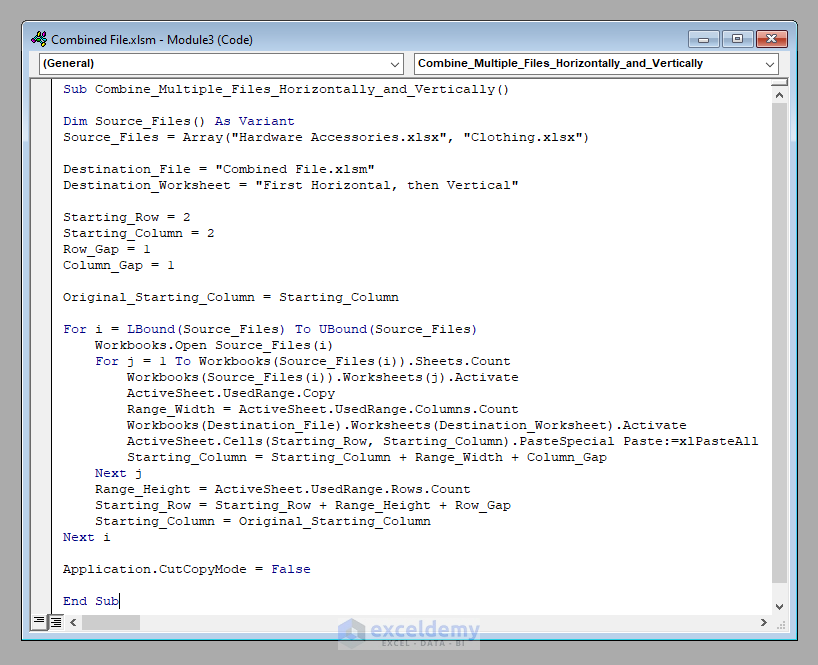Merge Excel Docs Into One Sheet Easily

Managing multiple Excel files can often become a tedious task, especially when you need to consolidate data from various sources into one coherent, workable sheet. Whether you're compiling data for monthly reports, project tracking, or any other form of data analysis, merging Excel documents is a skill that can significantly streamline your workflow. In this post, we'll explore easy methods to merge Excel documents into one sheet, ensuring you can handle data with efficiency and accuracy.
Why Merge Excel Documents?

Before diving into the "how," let's understand the "why." Here are some compelling reasons to merge Excel documents:
- Centralized Data Storage: Having all your data in one place reduces redundancy and errors.
- Easier Analysis: Comparing and analyzing data becomes simpler when everything is consolidated.
- Enhanced Reporting: Merge data to create comprehensive reports or dashboards without toggling between multiple files.
- Time Saving: Automation reduces the time spent on manual data entry and copying.
Step-by-Step Guide to Merging Excel Documents

Using Excel’s Built-In Features

Excel offers several ways to combine data from different sheets or workbooks:
1. Power Query
Power Query is an incredibly powerful tool for merging Excel documents:
- Open Excel and go to Data > Get Data > From File > From Workbook.
- Navigate to the first Excel file you want to merge and click Open.
- Choose the worksheet or table to merge and click Load. This data will appear as a new worksheet in your current Excel file.
- Repeat for each file you want to merge, adjusting the Append Queries if necessary to combine different files.
📝 Note: Make sure all files have the same structure for easy merging.
2. Consolidate Command
Another method to merge data:
- Open Excel and go to the sheet where you want to merge data.
- Under Data > Consolidate, select the function you want to use for merging (Sum, Average, etc.).
- Click Add and navigate to the source workbooks, selecting the ranges of data you want to merge.
- Choose Create Links to Source Data if you want to keep the data updated as the source changes.
Using VBA (Visual Basic for Applications)

For advanced users or those dealing with complex files, VBA can automate the merging process:
Sub MergeWorkbooks()
Dim FolderPath As String
Dim FileNames() As String
Dim i As Integer
' Define the path of the folder containing the Excel files
FolderPath = "C:\your\folder\path\here\"
' Use DIR function to get all Excel files in the folder
FileNames = Split(CreateObject("WScript.Shell").Exec("CMD /C DIR """ & FolderPath & "*.xls*"" /B /S /A:-D").StdOut.ReadAll, vbCrLf)
For i = 0 To UBound(FileNames) - 1
' Open each file and copy the data to the current workbook
Workbooks.Open FileNames(i)
Windows(FileNames(i)).Activate
Sheets(1).Range("A1").CurrentRegion.Copy
ThisWorkbook.Sheets("Master").Range("A1").End(xlDown).Offset(1).PasteSpecial xlPasteValuesAndNumberFormats
ActiveWorkbook.Close False
Next i
Application.CutCopyMode = False
MsgBox "All workbooks have been merged!"
End Sub
⚙️ Note: This VBA script assumes all data starts from A1 in each file and there's a 'Master' sheet in the workbook where data will be merged.
Using External Tools

If built-in Excel functions aren’t enough or you prefer a different approach:
- Kutools for Excel: A powerful Excel add-in that simplifies data management with features like “Combine” which can merge multiple workbooks.
- Online Tools: Websites like merge-excel-files.com or excel-online.com allow you to upload multiple Excel files for merging without needing any software.
Best Practices for Merging Excel Documents

To ensure a smooth merging process:
- Backup Original Files: Always keep original data intact in case of errors.
- Ensure Consistency: Check that column headers and data types match across files.
- Data Validation: After merging, validate data integrity to ensure accuracy.
- Plan Your Merge: Know what data you want to merge and how, including naming conventions and merge rules.
Merging Excel documents into one sheet can greatly enhance productivity, reduce errors, and facilitate data analysis. By employing the methods described above, you can handle large datasets from various sources with ease. Whether you choose Excel's built-in features, automate with VBA, or use external tools, the key is to choose the method that best fits your workflow and data complexity. This comprehensive guide should equip you with the knowledge to efficiently merge Excel documents, making data management a more streamlined process.
What if my Excel files have different structures?

+
If your Excel files have different structures, you’ll need to manually adjust or use data transformation tools before merging. Power Query can help align data by transforming and renaming columns to match a consistent structure.
Can I automatically update merged data when source files change?

+
Yes, with the ‘Create Links to Source Data’ option in Excel’s Consolidate feature or by using dynamic data sources in Power Query, your merged data can automatically update as changes are made to the source files.
What’s the safest way to merge data without losing information?

+
Always backup your original files. Start with a test merge to ensure the process works correctly. Review the merged data thoroughly, and consider using tools like Excel’s Data Validation to catch any discrepancies or missing data.
How can I handle files with different data ranges?

+
If files have different ranges, you’ll need to define a common range for merging or adjust your VBA code to adapt dynamically to each file’s data range.
Is there a way to merge Excel files on Mac?

+
Yes, Mac users can use Excel 2016 or later versions with Power Query. Alternatively, you can use Automator to automate Excel tasks or look for compatible online tools or third-party software.



